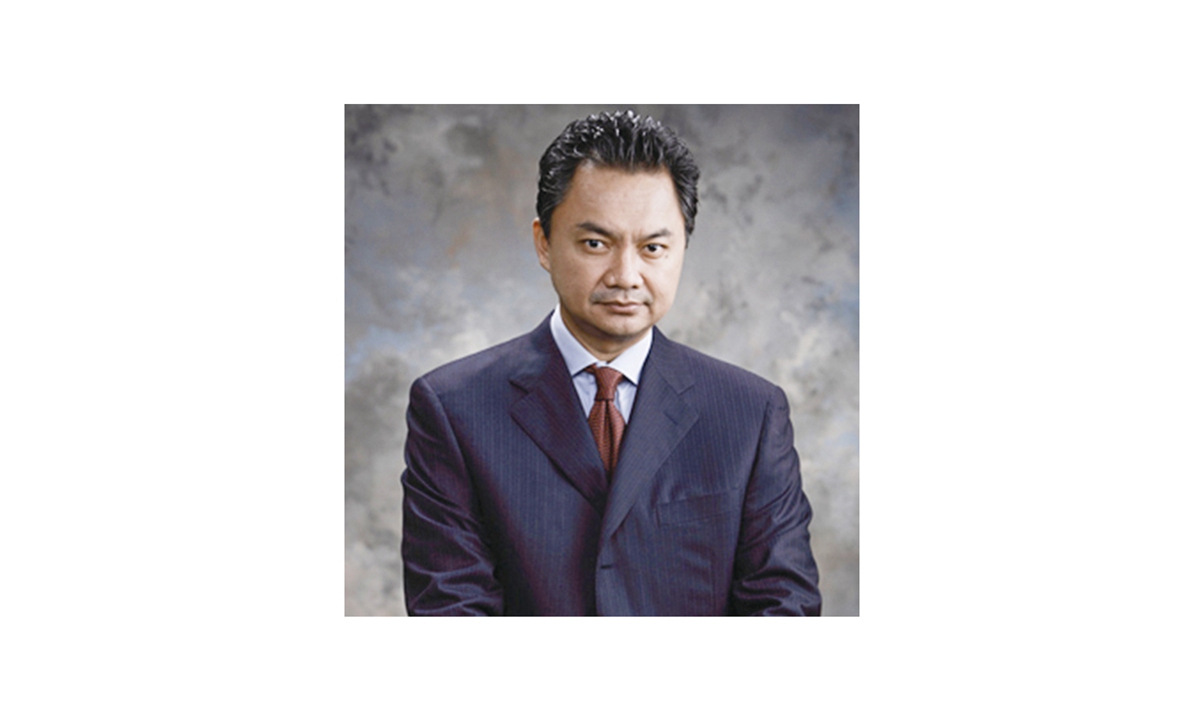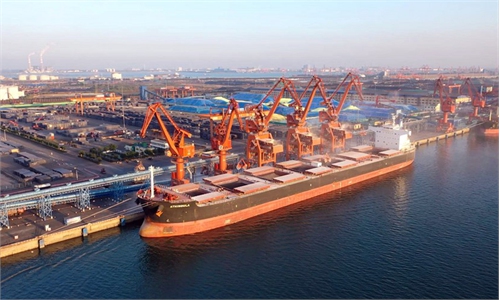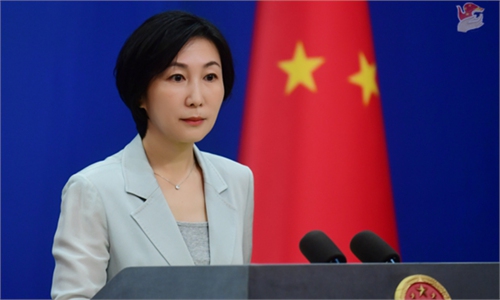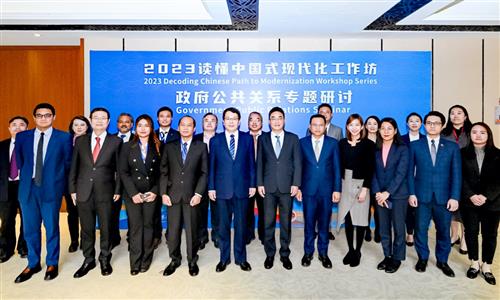Better for Manila to learn Indonesian wisdom to balance ties with China, US: former Indonesian deputy FM

Illustration: Chen Xia/GT
Editor's Note:"I like the fact that you invite everyone… I like the spirit of - hey, let's all get together and talk about our issues," Dr. Dino Patti Djalal (Djalal), Indonesia's former deputy foreign minister and former ambassador to the US, said while sharing his views on the 10th Beijing Xiangshan Forum with Global Times (GT) reporters Li Aixin and Guo Yuandan in an exclusive interview. The messages of the forum focus on equality, mutual respect, non-intervention and global consensus which are not found in Western declarations. This reflects different concerns about the nature of international relations, Djalal said.
GT: What impressed you the most during the 10th Beijing Xiangshan Forum?
Djalal: First, I like the fact that China invites everyone - Europeans, Africans, Southeast Asians, South Asians, Central Asians, Russians, and even Americans. I like the spirit of - hey, let's all get together and talk about our issues.
Second, I appreciate the messaging, which focuses on equality, mutual respect, non-intervention and global consensus. These are very important messages that are commonly not found in Western declarations. You can look at G7 or NATO declarations, you won't find terms like mutual respect or non-intervention. But in forums like this, these terms are prevalent. This reflects different concerns about the nature of international relations. For relevant countries, these terms have significant meaning based on their historical experience. Many countries, for example, Indonesia, have faced foreign interventions. This is why we are very sensitive and very strongly committed to non-intervention, because it happened to us.
One term that I hear a lot during the forum is hegemony. Different countries talk about the need to avoid hegemonic influence in the world or in their regions. ASEAN is an anti-hegemony regional architecture. The reason why ASEAN was created was to establish an environment in which the countries of Southeast Asia would be the master and driver of their own region. If you look at the ASEAN structure, the ASEAN declarations, and the ASEAN instruments, you will find that it leaves no room for other countries to play a hegemonic role in the affairs of Southeast Asia.
On equality, many countries feel they are dismissed from the table, not part of global decision-making; they are outsiders. This is why they say they don't experience mutual respect. It's interesting to examine these coded words. They hold significant meaning for some countries, while they hold little significance for others. I'm glad to hear these terms being frequently used during the Beijing Xiangshan Forum, and I wish the forum great luck for its development in the future.
GT: Tensions between China and the Philippines have been on the rise lately. What's your take on the concern that the US may be encouraging the Philippines to take unnecessary risks?
Djalal: The South China Sea has always had the potential to be the flashpoint.
There have been good bilateral channels following President Ferdinand Marcos Jr.'s meeting with President Xi Jinping when the former came to China. They had many agreements and agreed on a path for cooperation. That was quite promising. I hope the two sides can establish dialogue, consultation and diplomacy in the spirit of the Treaty of Amity and Cooperation in Southeast Asia to resolve their differences.
As for the South China Sea, the importance of finalizing the negotiations for a code of conduct needs to be stressed. During the last Indonesia chairmanship of ASEAN, it was agreed that both ASEAN and China should conclude negotiations in the near future. The negotiations have been going on for quite some time now. We hope for a final completion of the negotiations.
The Philippines now seems to be a country of interest in China-US competition. President Marcos Jr. went to China and made several agreements. And then he went to Washington DC and met with President Joe Biden. There's this pull on both sides and then there was the incident in the South China Sea.
If we are talking about China-US rivalry in the region, I think the Philippines is the place where it is happening the most. However, I hope the Philippines can be in the place where Indonesia is now, because we have good relations with China - a very strong relationship and a comprehensive strategy partnership - while we also have good relations with the US.
Indonesia supports the Belt and Road Initiative and Indonesia also supports the Indo-Pacific Economic Framework for Prosperity. I trust that a rebalancing game, again, can be done by the Philippines in ways that can support the Philippines having good relations with both the US and China and not having to choose sides.

Dino Patti Djalal Photo: dinopattidjalal.com
Djalal: The one concept that is most promising is the ASEAN Outlook on the Indo-Pacific (AOIP). Indonesia was among the first who came up with the Indo-Pacific concept. When the US, Japan, India and Australia, not in that order, came up with the free and open Indo-Pacific, there was a feeling of discomfort on the part of China, as if the Indo-Pacific is meant to isolate China.
Indonesia was asked to join the free and open Indo-Pacific, but we said to those countries, no, we can't, because we cannot go ahead of ASEAN. We have to be with ASEAN, in order to propose any strategic concept. That's why we went to ASEAN, and ASEAN came up with the AOIP.
In my view, China is comfortable with the AOIP, because it is inclusive. It is not meant to isolate or marginalize China. It is a concept that includes China. This is why President Xi said China supports the AOIP. At the same time, Indonesia also supports China's Global Development Initiative. That is an example of how ASEAN can bridge perception gaps between other countries on certain strategic developments.



